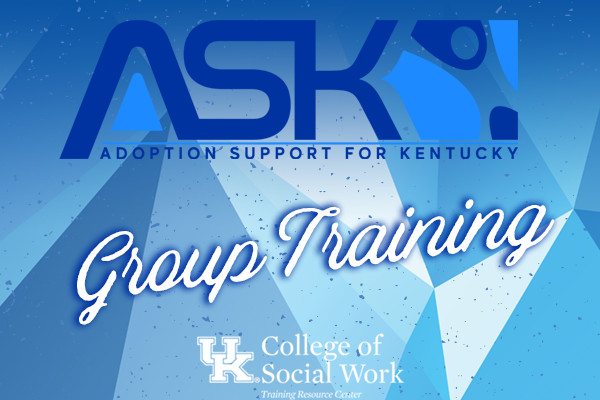
Week of Events
Learning Your Child Has A Disability
Learning Your Child Has a Disability aims to help foster and adoptive parents understand the unique emotions of discovering or confirming a child in their care has a disability. This training will also offer tips and strategies to help foster and adoptive families cope with these feelings and challenges. After completing this training, participants will […]
Monday, August 14, 2023
-
August 14, 2023 -Creating Memories & Meaningful Family Traditions For Blended Families
-
August 14, 2023 -A Child’s Education: Rights & Responsibilities
Creating Memories & Meaningful Family Traditions For Blended Families
Creating Memories & Meaningful Family Traditions for Blended Families will inform parents of triggers children in their home may have and what they can do as parents to help create new memories that will add to their healing process. This training will also discuss activities and ideas for creating memories and new family traditions with […]
A Child’s Education: Rights & Responsibilities
A Child’s Education: Rights & Responsibilities will inform parents of the Individuals with Disabilities Education Act (IDEA). The training informs foster and adoptive parents of the processes used to determine eligibility requirements for children with disabilities. In addition, this training will equip participants to ensure children ages three to twenty-one have access to the tools […]
Tuesday, August 15, 2023
-
August 15, 2023 -Guiding Your Child Through Adolescence
-
August 15, 2023 -Drugs: Things You Need to Know
-
August 15, 2023 -Twenty Things Adopted Kids Wish Their Adoptive Parents Knew
Guiding Your Child Through Adolescence
Guiding Your Child Through Adolescence explores the physical and emotional changes that children undergo as they enter adolescence. Parents will discuss how parental roles change during this period of their child’s development. Strategies for successfully communicating with children during adolescence are provided. After completing this training, participants will be able to: Identify physical and emotional […]
Drugs: Things You Need to Know
Drugs: Things You Need to Know is designed to inform parents of the many different classifications of illicit drugs, as well as the current trends related to adolescent drug abuse. Detailed descriptions of commonly abused drugs are provided, including the appearance of these drugs and the effects they produce in users. The importance of identifying […]
Twenty Things Adopted Kids Wish Their Adoptive Parents Knew
Twenty Things Adopted Kids Wish Their Adoptive Parents Knew will equip foster and adoptive parents to understand the thoughts and feelings children who are adopted may experience. It offers strategies and ideas to help parents be prepared for unique situations that may occur as their children grow and mature. By being prepared for various scenarios […]
Wednesday, August 16, 2023
-
August 16, 2023 -Perceptions Of Adoption: A Child’s Developmental View
Perceptions Of Adoption: A Child’s Developmental View
Perceptions of Adoption: A Child’s Developmental View will discuss the ways a child’s cognitive development skills and emotions develop, and how that impact his or her perceptions regarding adoption. This training provides information on how these perceptions change at each major developmental stage, along with how foster and adoptive parents can help children work through […]
Thursday, August 17, 2023
-
August 17, 2023 -Helping Your Child Succeed In School
Helping Your Child Succeed In School
Helping Your Child to Succeed in School will increase the ability of foster/adoptive parents to understand educational challenges faced by foster/adopted children. It will give resource parents the tools for creating a positive educational experience for their foster/adopted child, and equip them with the necessary tools to help support their children in the educational setting. […]
Friday, August 18, 2023
No events on this day.
Saturday, August 19, 2023
-
August 19, 2023 -Fostering & Adopting At-Risk Children
Fostering & Adopting At-Risk Children
Fostering & Adopting At-Risk Children explores categories of at-risk behaviors among children and adolescents that may lead to negative consequences, like poor health, injury or death. It assists foster/adoptive parents with identifying as-risk behaviors and offers strategies to help address them. After completing this training, participants will be able to: Identify types of “at-risk” behaviors […]
Sunday, August 20, 2023
-
August 20, 2023 -ASK-VIP Support Group With Kay
-
August 20, 2023 -Positive Adoption Language: Part 2
ASK-VIP Support Group With Kay
ASK-VIP Support Groups are expressly designed to meet the needs of foster and adoptive parents in an inclusive, safe, and compassionate environment. They are led by seasoned facilitators who have lived experiences with fostering and adoption. If you’re seeking an opportunity to share resources, suggestions, frustrations and successes with those who share the unique experience […]
Positive Adoption Language: Part 2
Positive Adoption Language: Part 2 will discuss the power and impact of words and terminology related to adoption and foster care. The training will provide strategies to help parents reword common terms and misconceptions into positive language that is unique to foster care and adoption, such as attachment and bonding, identity and self-esteem, and maintaining […]


